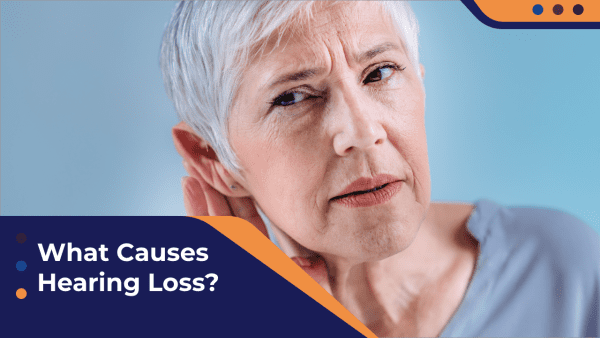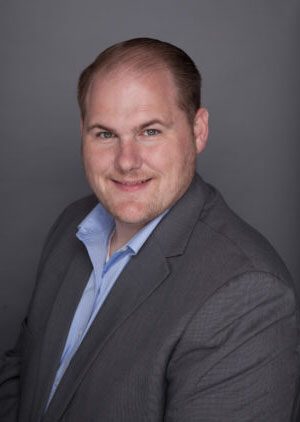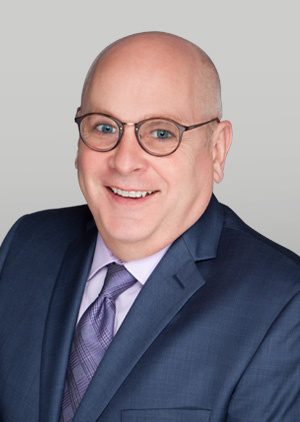What Causes Hearing Loss?

Hearing loss is the third most common chronic physical condition in the United States. There are a few reasons that hearing loss occurs. Hearing loss can seriously impact a person’s quality of life and impact those that care for them. With approximately 40 million Americans suffering from hearing loss, it’s important to understand the causes, and what if anything can be done to help.
Aging
Age related hearing loss, also known as Presbycusis, often runs in families. It is thought that changes to the inner ear and auditory nerve play a role. The damage occurs over time gradually worsening as the affected person gets older. Problems associated with this group can be significant as it becomes difficult for them to understand their doctor’s advice and safety concerns can become problematic.
Age related hearing loss often develops gradually therefore patients may not realize the severity of their condition.
Noise
It is easy to think that we can endure loud noises – concerts and sporting events, heavy equipment, tools and machinery, to name a few. The ear is a highly sensitive organ and can be easily and permanently damaged by loud noises within just a few minutes. Repeated exposure over time can significantly impact how quickly you develop hearing problems.
Normal conversation is measured at around 60 decibels (dB). Any sound over 70 dBs over a period of time may start to affect hearing. This includes traffic and even household appliances. These sounds may feel annoying. The louder the noise the quicker the damage to the ear. Other situations that can affect the hearing include outdoor gardening equipment such as leaf blowers and lawnmowers. Motorcycles, loud stereos, shouting or barking near the ear and standing near sirens. Sounds at this level can reach 110 dB or more and result in hearing damage within 2 minutes or less.
The reason sound causes hearing loss is the damage it can cause to the sensitive structures inside the ear including the cells and membranes in the cochlea. The average person has about 16,000 hair cells in their cochlea at birth. These cells send sound signals to the brain. 30 to 50% of these cells can be damaged before hearing changes are noticed. When loud noises occur, these hair cells bend which is why it is hard to hear after being at a concert. Over a few days, the cells straighten again and return to normal. Some cells however can die in the process, especially with repeated exposure resulting in permanent damage. This is why hearing protection is important in any situation where loud noises occur.
Disease related hearing loss
Some infectious diseases can cause hearing loss including meningitis, mumps, chicken pox, STDs and cytomegalovirus. A recent study also suggests COVID 19 infection can result in sudden hearing loss, even in asymptomatic patients. These viral infections can damage the sensitive hairs inside the ear or affect the auditory nerve. This can even happen in utero, sometimes resulting in hearing loss in newborns. This hearing loss may not be detected until the baby is tested at 6 to 12 months of age.
Chronic conditions can also impact hearing through elevated blood sugar levels in diabetes or high blood pressure. This can damage those sensitive cells and lead to long term irreparable damage over time. Low frequency hearing loss has also been associated with cardiovascular disease. Comorbidities are increasingly being discovered making regular hearing testing imperative in total patient management to improve care and outcomes.
The final cause of disease related hearing loss is through localized ear infections. The hearing loss from this can be temporary and due to fluid build up behind the ear drum. Hearing typically restores to normal a few days after the infection clears. Permanent hearing loss due to this etiology is rare.
Medications
Some medications have been associated with hearing loss or tinnitus. These include chloroquine and quinine, aminoglycosides, diuretics, and chemotherapy drugs. These can result in temporary or permanent hearing loss.
Common pain relievers such as aspirin, naproxen and acetaminophen may also cause hearing loss. This can occur when high doses of these medications are taken for extended periods of time. When taken in normal doses this risk is very low.
The reason some of these medications impact hearing is not always clear. If any change in hearing occurs, patients should always consult their physician.
Genetics
In babies born with hearing loss, 50-60% of causes are genetic. This can be due to abnormalities of the formation of ossicles in the external ear, malfunction of the cochlea or auditory nerve or central dysfunction at the level of the eight cranial nerve, auditory brainstem, or cerebral cortex.
Risk for congenital abnormalities can be screened for and genetic counseling is available to prospective parents to determine potential risk. More than 25 genes have been associated with autosomal dominant nonsyndromic hearing loss.
Regular testing of hearing throughout life aids in the diagnosis and treatment of those affected from impaired hearing. For those at risk, annual screening is recommended to monitor for disease onset and progression.
Talking to a physician about the risks of hearing loss, possible lifestyle modifications, and medication compliance can aid motivation and alleviate frustration for the affected. Early intervention also means they do not need to suffer isolation, misunderstandings, or dangers to their safety due to no being able to hear well.
May is Better Hearing Month. This is a great opportunity to add hearing services to your practice. Contact us to see if your practice qualifies 210-972-0497, or visit phnusa.com










